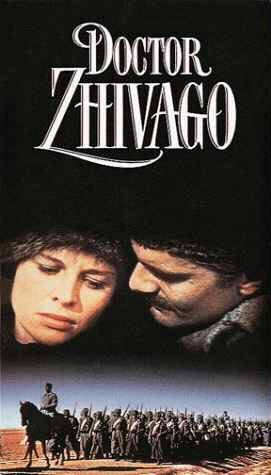 Don’t miss an opportunity to see one of the most popular Russian epic films of all time, when Cinema at Tusculum presents Russian epic Dr. Zhivago, on March 4 at 7 p.m. in the Behan Arena. Students who attend receive Arts & Lecture Credit.
Don’t miss an opportunity to see one of the most popular Russian epic films of all time, when Cinema at Tusculum presents Russian epic Dr. Zhivago, on March 4 at 7 p.m. in the Behan Arena. Students who attend receive Arts & Lecture Credit.
Brilliantly photographed and sweepingly romantic, Dr. Zhivago is an exploration of the Russian Revolution as seen from the point of view of the intellectual, introspective Dr. Zhivago, played by Omar Sharif.
Released late in 1965 Dr. Zhivago was a box-office success across the globe and grossed more than Gone with the Wind. It was nominated for 10 Oscars and won five of them, for Best Adapted Screenplay, Best Cinematography, Best Music Score, Best Art Direction-Set Decoration and Best Costume Design.
Dr. Kim Estep, provost and vice president for academic affairs will introduce the film. Estep said she selected the film because she has previously used small snippets from the film when teaching about World War I, the Bolshevik Revolution and related historical events of Russian history.
“I find that it brings life to what can be ‘dry’ history, to see the impact of these cataclysmic events on individual people living during that time period,” Estep said. “The social upheaval and personal hardship of this time in Russian history is very accurate-which is probably the main reason his novel was banned in the Soviet Union when it was published in 1957.”
In addition, mark your calendar for March 25, when the final film in the series, East/West will be show, also at the Behan at 7 p.m. The presenter will be Dr. Biliana Stoytcheva-Horissian, originally of Bulgaria, where the film was shot, and a department chair at Emory and Henry University.
All shows in the Tusculum College Cinema Series are open to the public and are free of charge.
Dr. Zhivago Trivia
- Metro-Goldwyn-Mayer ((MGM)) who bankrolled the movie originally wanted to cast star Paul Newman in the title role played by Omar Sharif. Actor Peter O’Toole was offered the part, but declined.
- Although depicting Russia and in particular the stunning city of Moscow, the movie was actually filmed in Spain.
- The film was not shown in Russia until 1994.
- While the scene with the crowd chanting the Marxist theme was being filmed at 3 a.m., police showed up at the set thinking that a real revolution was taking place and insisted on staying until the scene was finished.
- One of the features which contributed to the outstanding box-office success of the movie and also critical impact was the immortal ‘Lara’s Theme’, a composition of ‘balalaika’ music, created by Maurice Jarre. This musical number was an international success and continues to be as popular as it was forty years ago.


